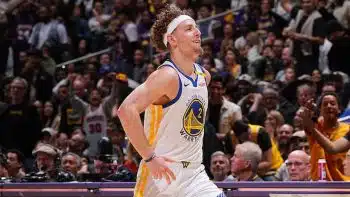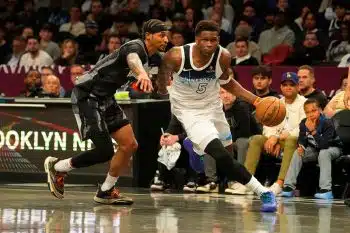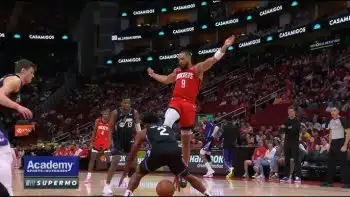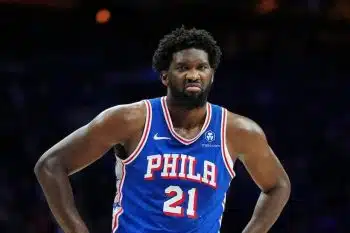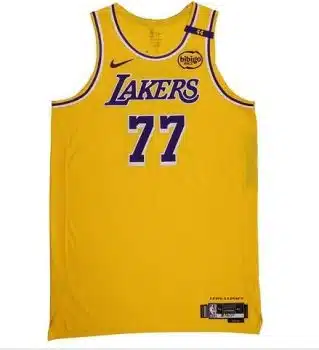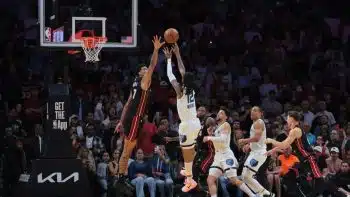NBA
NBA Daily: Admiral Schofield Set On Building His Own Reputation
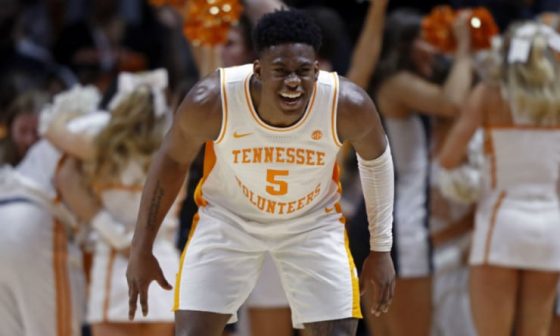
Admiral Schofield lives for the late-game heroics.
“A lot of people talk about the clutch gene,” the former Tennessee forward told reporters at the NBA Draft Combine in Chicago with a grin. “ I don’t think it’s a gene. I just think it comes from a mindset, comes from your preparation and how you approach the game.”
On March 9, 2017, Schofield had an opportunity. With the ninth-seeded Volunteers down by two to the third-seeded Georgia Bulldogs in the SEC Tournament, he hoisted a shot for the victory from the left elbow.
To everyone’s dismay, Schofield’s attempt fell short. Tennessee was eliminated and their season was over. Then a sophomore, he and his teammates were scrambling to find somebody to take it. He admittedly was not ready to be in that spot.
That’s when something clicked in his head.
“I think my mindset changed to ‘I will never be in a position where the last shot is decided for me and I won’t make it,’” Schofield said in a farewell video post on Twitter back in March.
“I just want to contribute to winning,” Schofield said at the Combine. “Whether it’s defending for the last shot being on the defensive end, whether it’s taking that corner three or taking that kick-out three or making a play, I’m that guy. I want to be that guy…”
Ever since then, that mentality has stuck with him.
Do a quick Google search on Schofield. Amidst the highlight-reel flashes of athleticism, it’s guaranteed that you’ll find more than a handful of different moments where the fearless 22-year-old stepped up during crunch time.
On December 8 this past year, Schofield led then-seventh-ranked Tennessee to a win over the top-ranked Gonzaga Bulldogs. En route to a career-high 30 points, he caught fire in the second half and knocked down the go-ahead three from the top of the perimeter with 22 seconds left in the game.
The story didn’t change in conference play. A month later with his team up by two on Florida, Schofield went to the right corner and hit a dagger with 41 seconds to play. In a one-point affair vs. Ole Miss later in the season, he took a game-clinching charge.
When the NCAA Tournament came around, Schofield stepped up once again. Tussling in the first round with an upset-minded Colgate squad, he nailed two triples from the same right corner spot with less than two minutes to go. Before getting eliminated in overtime by Purdue in the Sweet 16, he drained a deep three above the break to give the Vols the lead with five minutes left in regulation.
“I mean if you ask guys like Kobe [Bryant], they won’t tell you it’s a clutch gene. It’s just the thousands of shots. It’s another shot that he shot a thousand times,” Schofield said at the Combine.
“It’s the same thing for me. I stay in the gym. I work on my mindset. I work on situational things in the gym and [I’m] always staying ready, staying prepared for the next shot and being prepared for that big shot. And I just feel like in that moment in time, I think I’m the best option.
If you can’t tell by the infectious smile, Schofield is beaming with confidence—and why wouldn’t he be?
When he arrived in Knoxville in 2015, things weren’t great. The coach that recruited him to come to Tennessee, Donnie Tyndall, was fired after his lone underwhelming season for the program. Rick Barnes came in as a replacement and the results were poor in his first couple of seasons, too.
But over the last two years, the Volunteers are 57-15. They’ve appeared in back-to-back March Madness tournaments and won the regular season SEC Championship in 2018. For the first time in school history, they were ranked No. 1 in the country during the month of January. It was the first time they had been the nation’s top team in over a decade.
The turnaround was monumental, and Schofield realizes how big of a piece he was to that puzzle.
“It felt great because, to be honest, I was part of that foundation building that culture,” Schofield said. “And to be on top in the end really is just a testament to the hard work. And everything that we built in those first two years, it really started to pay off in those last few years.
“But to say that I was one of the guys that helped start that is a blessing. We had a great year. We had a great run.”
Transitioning to the next level, Schofield feels as ready as anybody. Under Barnes, he says everything was “pro-structured.” The Vols were constantly pushed. They were always prepared. Perhaps most importantly, everybody was held accountable, which is essential when players are going to be on their own in the pros.
Because of his experiences, Schofield believes in himself. It’s not about him simply sticking around the league. He desires much more than that.
“I think I can contribute to any team or any organization that brings me in, not just with my play,” Schofield said. “But just being a great teammate, being an ambassador for that organization and for that community, really coming in and being a positive influence, having some type of leadership. Not saying I’ll come in and be ‘the guy’ or ‘the leader.’ There’s many ways you can lead.”
In discussing his character, it’s hard not to bring up one of the most selfless moments in his college career. With Tennessee and Iowa knotted up prior to heading into overtime, Schofield—who was one hack away from fouling out—told Barnes to take him out in favor of teammate Kyle Alexander.
Cold from the field and in danger of being disqualified, Schofield made the request knowing Alexander would be a game-changer. It paid off in a victory.
“I’m a winner,” Schofield said after the 83-77 win in extra time. “At the end of the day, if I don’t have to be on the floor to win, that’s fine.”
While there’s plenty of other times he’s put his leadership on display, you’d be hard-pressed to find a more perfect example of Schofield’s team-first outlook. Combine those intangibles with the skill set and you have yourself one hell of a basketball player.
Schofield views himself as a positionless player with the ability to guard two through four or five, switching and slowing down scorers and doing the little things on the defensive end. Within offensive sets, converting on shots from the corner, coming off pin-downs and utilizing dribble hand-offs are his forte. He also has incredible athleticism, whether it’s skying for a huge dunk or swatting an opponent.
NBA teams can clearly see the 40 percent rate from three over the last three years. Still, there’s more than meets the eye to that, according to Schofield.
“[I want to] show ’em that not only can I shoot the ball, I can defend and do multiple things – create a little bit for others and pass the ball well,” Schofield said. “I don’t credit for how well I pass the ball either because I haven’t been in many situations at Tennessee to pass the ball. But I do pass it pretty well.”
Schofield maintains he deserves to be picked in the first round. As one of three draft hopefuls from Tennessee—Grant Williams and Jordan Bone being the others—who hopes to hear his name called Thursday night, that’s what he’s aiming for.
If he gets his wish, Admiral will become the second professional athlete in the Schofield family. His older brother, O’Brien, is an NFL linebacker who was a part of the 2014 Super Bowl champion Seattle Seahawks.
“He’s helped me a lot,” Admiral said of his O’Brien. “But more than anything, I’ve just been very observant seeing how he did things, even though it was football. Just got a little taste of that type of spotlight, him being an NFL Champion, playing on the Seahawks.
“Just seeing the process of that, seeing what it takes to win on that level, seeing some of the things that they did—I was able to implement that at the University of Tennessee, but I also I’ll be able to take that with me going forward when I get to the league.”
Individually, there’s always room to get better. You can develop better dribbling, improve your passing or tweak your jumper. But can you make an impact on winning?
Schofield does.
And that’s what will separate him from the rest.
